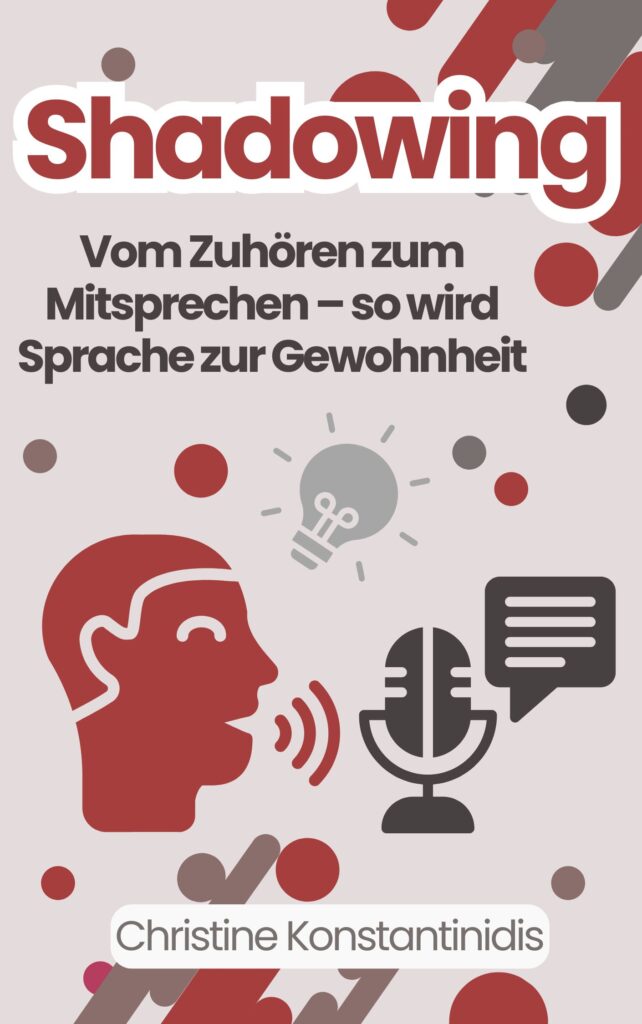
Auch heute gibt es wieder die Originalantworten in Englisch und Italienisch zur sechsten Folge der Interviewserie auf meinem Blog und auf dem Blog von Sprachheld.de
Die sechste Frage lautete:
How long does it take to speak a language?
Come impari velocemente a parlare una lingua straniera?
Viel Spaß beim Lesen der Antworten. Die deutschen Übersetzungen findest du in den beiden oben verlinkten Artikeln.
Olly Richards
You can start speaking from day 1, but in reality I’ve found it takes about 3 months before you can hold an interesting conversation, and 6 months before you can do it with a degree of class! This depends very much on the language you’re learning, though.
Jane Eggers
The quick answer is “it depends”. At what point can you speak a language? When you can survive on a day-to-day basis in the country where your language is spoken? When you can go to a school parents’ evening and understand what’s going on? When you can debate politics? When you understand references to 80’s TV shows in the country where your language is spoken? A lot also depends on confidence: I’ve seen people with a terrible accent and grammar, and minimal vocab, who are able to put their point across convincingly in the foreign language. Or you might be able to form perfect sentences but lack the confidence to jump in and use them.
Guilherme Castro
That is a difficult question. First of all, it will vary according to two points: 1) similarity between the target language and the languages you already know, and 2) the learner’s commitment. If you are a Portuguese native speaker and start studying Spanish in a daily basis, you will probably be speaking well sooner than you can imagine, let’s say that in one year or even less than that you will be fluent. But if you are a Portuguese native speaker and decide to learn Japanese, it will probably take more than 4 years for you to speak fluently. And if you do not study every day, it will easily take about 6 or 8 years to reach just a simple level of fluency in Japanese. I could say that an average time to speak a language well (not fluently) would be 2 years, but there will be people spending less time and people spending more time. So my advice is just to concentrate in studying every single day, so when the time comes you will be able to speak naturally.
Kirsty Major
I think this depends on many factors such as which language you want to speak, how much exposure you have to that language, how motivated you are and how much time you can dedicate to language learning.
I am wary of any programme that claims you can attain fluency in a week or other such unrealistic promises. Language learning is a marathon that requires commitment, not a quick sprint that’s over in a couple of weeks.
It also depends on what is meant by “to speak a language”. For some learners, being able to speak enough to get by and be understood is enough. Others want the language they produce to be more accurate, particularly in a business context. This takes more time but I believe it’s worth it, because if you take some time to understand grammar and see how others use the language, you are in a better position to create your own sentences and to know that they have a better chance of sounding good.
Giulia Novali
Penso che nell’apprendimento di una lingua straniera la velocità non serva, ma che servano piuttosto costanza e perseveranza, oltre a molto impegno.
Chiara Fortini
Per prima cosa pianifico il tempo di studio. Mi chiarisco le idee su quello che voglio imparare e in quanto tempo lo voglio fare. Suddivido gli argomenti e le lezioni in base ai miei impegni.
Provo a utilizzare la lingua appena imparo i primi vocaboli, in questo modo mi accorgo che è stimolante vedere che so adoperare un po’ della lingua già da subito e ciò mi invoglierà a continuare ad imparare ancora
Cerco di non pensare troppo agli errori che potrei fare, ma cerco di lasciarmi andare, perché provare a parlare è l’unico modo per imparare. (questo è purtroppo un mio grande limite nella lingua straniera, ciò per quanto mi riguarda mi accade per problemi di timidezza)
Cerco di non limitare l’apprendimento a momenti specifici, ma di portarlo dentro la mia quotidianità il più possibile. Per esempio mentre cucino nomino gli ingredienti e gli utensili con il loro nome nella lingua che studio, lo stesso lo posso fare in altri ambienti come la scuola o mentre passeggio per la città.
Ed infine sarebbe molto utile (ma non riesco a trovarlo) trovare nella mia città un tandem partner con cui parlare.
Claudia Scaringi
Sembrerà banale ma…parlando! Oggigiorno grazie ad internet è estremamente facile parlare con qualsiasi nazionalità nel mondo, per me ad esempio è molto più economico fare una chiacchierata con una persona tailandese su Skype rispetto ad andare a fare un aperitivo in Tailandia. Parlare con i madrelingua è uno dei modi migliori e più veloci per imparare, ma fatelo con criterio. Quando si parla è il momento in cui bisogna mettere insieme tutte le informazioni che si hanno imparato (genere dei nomi, coniugazione dei verbi, ordine delle parole, pronuncia, etc). Non abbiate paura di fare errori, è tramite agli errori che si impara, però segnate i vostri errori e la correzione che la persona madrelingua vi fornirà. Se parlando vi rendete con che non avete capito come funziona la costruzione con i verbi piacere e mancare in italiano, prendetene nota, così poi potrete controllare. Non vi ricordate un vocabolo? Scrivetelo, lo ricorderete meglio. Inoltre, parlando coi madrelingua, avrete l’occasione di sentire la lingua come è effettivamente parlata, ciò spesso non corrisponde con le espressioni studiate sui libri, e potete sentirne anche la pronuncia. Insomma in 30 minuti di conversazione avete la possibilità di migliorare tutti gli aspetti della comunicazione, e perfino gratis se riuscite a trovare una persona con cui fare uno scambio di lingua.
Das waren die Originalantworten zur sechsten Interviewfrage. Die Antworten von Claudia und Guilherme in deutscher Sprache findest du bei mir auf dem Blog, die Antworten von Giulia, Chiara, Olly, Kirsty und Jane bei Sprachheld.de.
Herzliche Grüße
Christine





Schreibe einen Kommentar